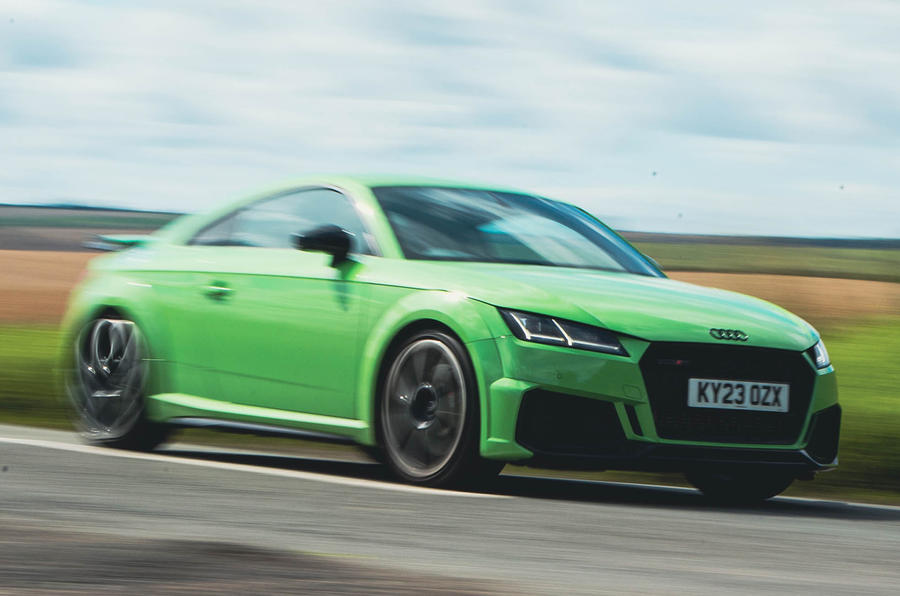The TT RS is about a foot shorter than the Porsche 911 but it’s still relatively practical.
The rear seats are big enough only for very small occupants, and Audi knows it; there’s a yellow label on the inside of the passenger door warning you against even trying to get in if you’re more than five feet tall.
Yet the seats are useful, if not for people then for shopping bags or holdalls.
And if usability is going to sell any sports car, it ought to sell the TT RS next to strictly two-seat rivals such as Jaguar F-Type even harder than it sells lesser Audi TTs against 2+2 rivals such as the Toyota GT86.
But the readily apparent material quality, sharply drawn style and dazzling technical sophistication of the TT RS’s cabin ought to sell the car harder still.
Sports car interiors so often look and feel like afterthoughts – the bit that manufacturers get to last, after they’ve spent most of the budget on (and traded off occupant space for) an expensive mid-mounted engine and then invested in lightweight suspension and a flighty weight-saving body.
But the TT’s cabin has never felt like that, and the TT RS’s in particular surrounds you with swish, perfectly finished materials and tactile leather and Alcantara and greets you with wonderfully neat, solid and appealing switchgear.
The car’s driving position is excellent, too, being as low as you’d ever want it and offering abundant leg room and decent head room.
Instrumentation is via Audi’s digital Virtual Cockpit concept, which takes a bit of time to get used to but is well worth the investment of effort. It allows you to have large-scale analogue dials if you prefer – or to display almost any other information you’re likely to want close to your natural line of sight.
The TT RS’s 12.3in Virtual Cockpit instrumentation and infotainment system shows how digital technology can and should be used in a sports car, putting pertinent information close to your line of sight and allowing you to choose exactly what is put in front of you and when. It also makes toggling between modes very easy.
The extra display mode added for this particular model is reminiscent of the one appearing in the current Lamborghini Huracán, putting an analogue-style tacho and digital speedo front and centre and your navigation mapping off to one side.
It’s great for use on track days or similar, but for road driving we still prefer a pair of analogue dials.
The car’s MMI Navigation Plus package gives you Audi’s MMI Touch with fingertip character input, 10GB of onboard HDD music storage and Audi Connect services with Google Maps and Street View destination input.
As a standard offering, it’s unbeatable in the class. Audi Phone Box with wireless charging and a Bang & Olufsen premium audio system are available as options.
